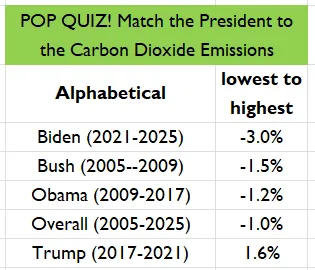https://www.nytimes.com/2019/04/30/climate/republicans-climate-change-policies.html
WASHINGTON — When John Barrasso, a Republican from oil and uranium-rich Wyoming who has spent years blocking climate change legislation, introduced a bill this year to promote nuclear energy, he added a twist: a desire to tackle global warming.
Mr. Barrasso’s remarks — “If we are serious about climate change, we must be serious about expanding our use of nuclear energy” — were hardly a clarion call to action. Still they were highly unusual for the lawmaker who, despite decades of support for nuclear power and other policies that would reduce planet-warming emissions, has until recently avoided talking about them in the context of climate change.
The comments represent an important shift among Republicans in Congress. Driven by polls showing that voters in both parties — particularly younger Americans — are increasingly concerned about a warming planet, and prodded by the new Democratic majority in the House shining a spotlight on the issue, a growing number of Republicans are now openly discussing climate change and proposing what they call conservative solutions.
“Denying the basic existence of climate change is no longer a credible position,” said Whit Ayers, a Republican political consultant, pointing out the growing climate concern among millennials as well as centrist voters — two groups the G.O.P. will need in the future.
It is at least partly opportunism, given that some lawmakers are simply reframing longstanding policies or priorities as “climate” policy. Still it is a significant shift, indicating that at least a few prominent Republicans see an advantage to breaking from right-wing orthodoxy that has long dismissed or openly derided concerns about the climate.
In recent weeks Senator John Cornyn of Texas — an oil state where climate denial runs deep — said he is helping write legislation to reduce emissions through “energy innovation.” Senator Lamar Alexander of Tennessee said he wants to create a “Manhattan Project” for clean energy funding. Senator Lisa Murkowski of Alaska is exploring bipartisan plans to curb emissions from her position as chair of the Senate Committee on Energy and Natural Resources. And Representative Matthew Gaetz of Florida, who once called to abolish the Environmental Protection Agency, introduced legislation to tackle climate change by encouraging nuclear energy and hydropower, as well as “carbon capture” technology, which aims to pull planet-warming carbon dioxide out of the atmosphere.
There are subtler signs of this G.O.P. shift as well. When House Speaker Nancy Pelosi created the House Select Committee on the Climate Crisis this year, Republican leaders tapped Representative Garret Graves of Louisiana as the panel’s ranking member. Though he hails from a region dependent on oil and gas, Mr. Graves has struck a bipartisan tone and made a point of noting the deleterious effect sea level rise will have on his state’s economy.
But Republicans also are walking a tightrope. In the Trump administration, G.O.P. orthodoxy has shifted strongly toward denying or dismissing the threat of climate change. Veering away from it could cause a lawmaker to lose campaign contributions and key political support.
“There’s a hesitancy I think on the part of Republicans to jump into a major policy without getting the cues from elites within the party and society as a whole that they’re going in the right direction,” said Steven Valk, a spokesman for Citizens’ Climate Lobby, which organizes to bring Republicans and Democrats together on market-based solutions to global warming.


